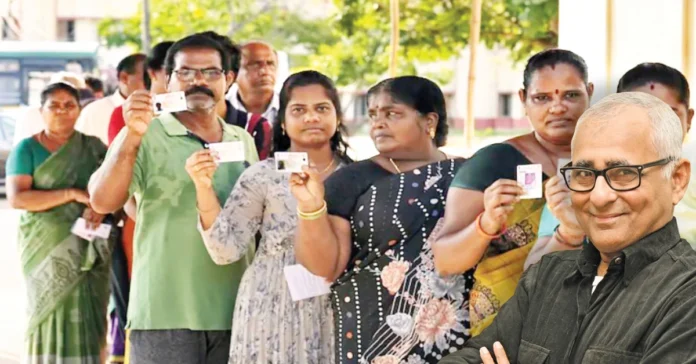By Inderjit Badhwar
At India Legal, we have always prided ourselves on being at the forefront of legal, constitutional, and policy debates that shape the destiny of our nation. This week’s cover story—an incisive analysis of the “One-Nation-One-Poll” (ONOP) proposal by Professor Ranbir Singh—reflects our commitment to presenting informed, balanced, and thought-provoking perspectives on issues that demand national attention.
Professor Singh, one of India’s most distinguished constitutional scholars and the founding vice-chancellor of National Law University, Delhi, has meticulously dissected the legal, political, and logistical ramifications of simultaneous elections. His analysis is not merely an academic exercise, but a critical examination of an idea that, if implemented, could alter the very fabric of our democratic process.
The Timeliness of This Debate
The ONOP proposal, which envisions holding simultaneous elections to the Lok Sabha and state assemblies, is not new. It has been debated in policy circles for decades and was, in fact, the norm until 1967. However, it has recently gained fresh momentum, with the central government commissioning a high-level committee, chaired by former president Ram Nath Kovind, to examine its feasibility. As India repeatedly emerges from and prepares for a multiplicity of elections, the possibility of synchronizing national and state polls has once again ignited a nationwide conversation—one that we believe demands rigorous legal and constitutional scrutiny.
The Constitutional and Legal Challenges
Professor Singh’s article lays bare the formidable constitutional and legal hurdles that must be addressed before such a radical reform can be implemented. The Indian Constitution, as it stands, does not mandate a fixed term for state assemblies. Article 83(2) and Article 172(1) stipulate that both the Lok Sabha and state assemblies shall function for five years, but they also allow for dissolution before the completion of the term. This means that aligning election cycles would necessitate significant amendments, potentially requiring a restructuring of federal principles embedded in the Constitution.
Would the ONOP proposal demand a fundamental rethinking of our federal structure? Would it shift the balance of power away from states and consolidate it in the hands of the centre? These are the critical questions that Professor Singh raises in his analysis, urging policymakers to tread with caution.
The Political and Practical Considerations
Beyond the constitutional and legal dimensions, Professor Singh explores the political and logistical feasibility of simultaneous elections. Proponents argue that frequent elections disrupt governance, lead to policy paralysis, and impose a massive financial burden on the exchequer. The Election Commission of India spends thousands of crores on conducting polls, and the model code of conduct—meant to ensure a level playing field—often delays critical government decisions.
However, critics contend that staggered elections are an essential feature of a vibrant democracy, ensuring greater accountability and responsiveness from elected representatives. A synchronized electoral cycle could, in their view, undermine regional issues and reduce voter engagement in state elections, thereby diluting the essence of federalism.
Professor Singh weighs these arguments with remarkable clarity, neither dismissing the idea outright nor endorsing it uncritically. Instead, he calls for a measured approach—one that prioritizes consensus-building and respects the foundational principles of India’s democratic polity.
The Way Forward
One of the key takeaways from this week’s cover story is that there are no easy answers to the ONOP question. A reform of this magnitude cannot be imposed through executive fiat; it requires careful deliberation, robust parliamentary debate, and widespread political agreement. Professor Singh advocates for a phased implementation strategy, perhaps beginning with synchronizing elections in some states as a pilot project before considering nationwide adoption.
At India Legal, we recognize that the debate over ONOP is not merely a procedural issue, but one that speaks to the heart of our democratic experiment. We hope that by presenting a nuanced and scholarly perspective, we can contribute to an informed national conversation—one that is rooted in constitutional wisdom, not political expediency.
As always, we invite you, our esteemed readers, to engage with this discourse, challenge assumptions, and share your insights. Democracy thrives on debate, and we remain committed to being the platform where such issues unfold.


